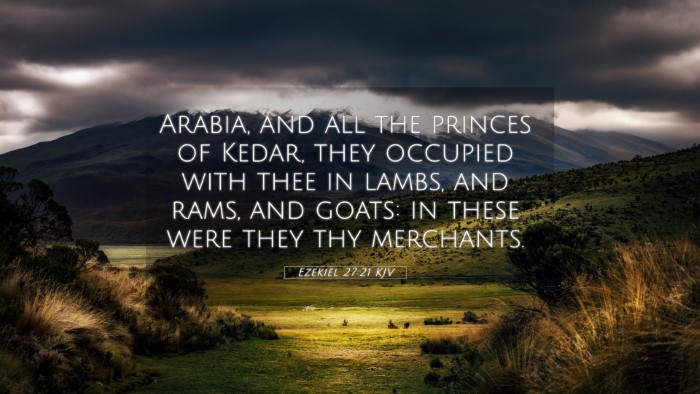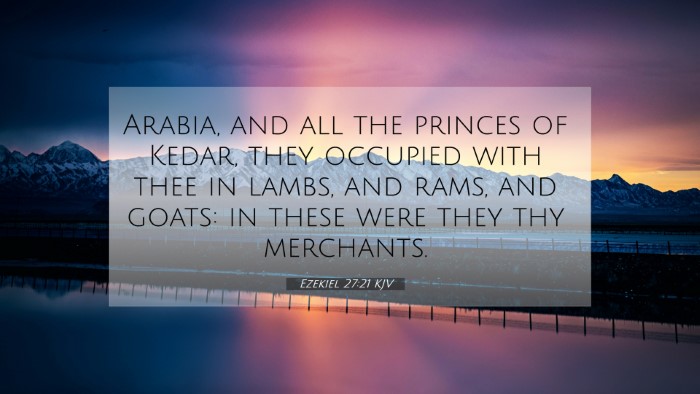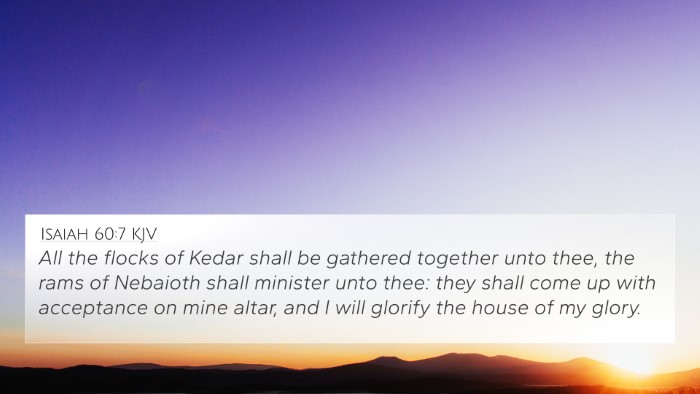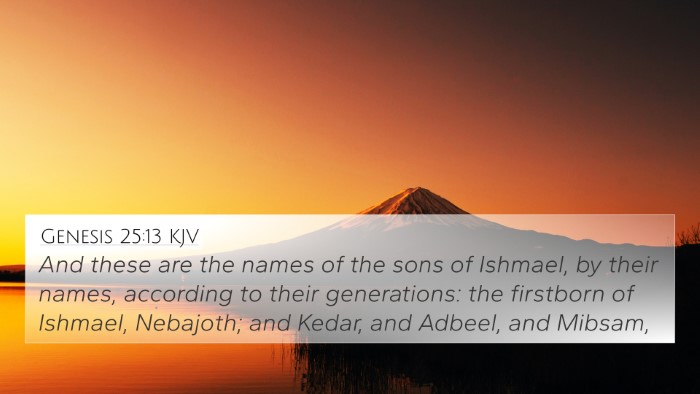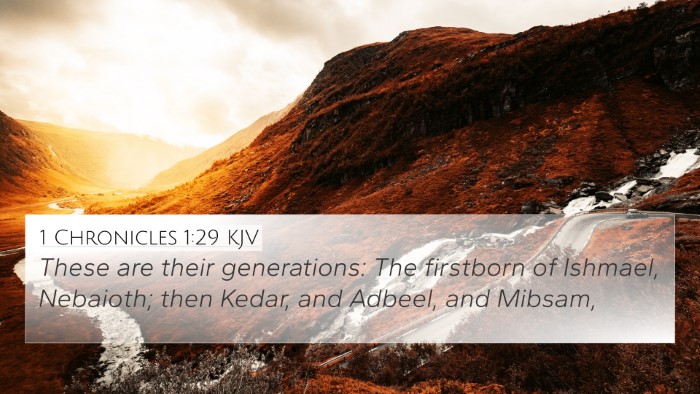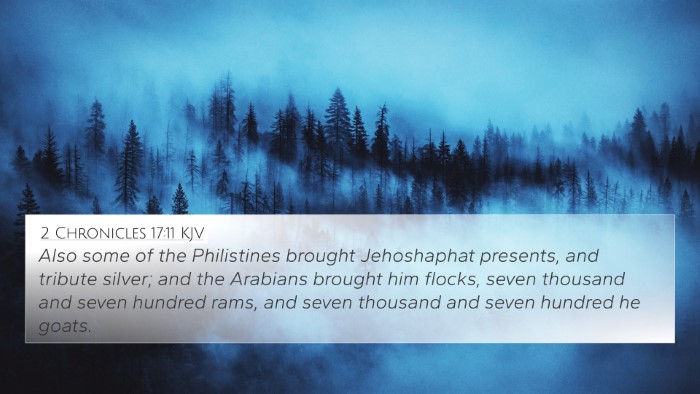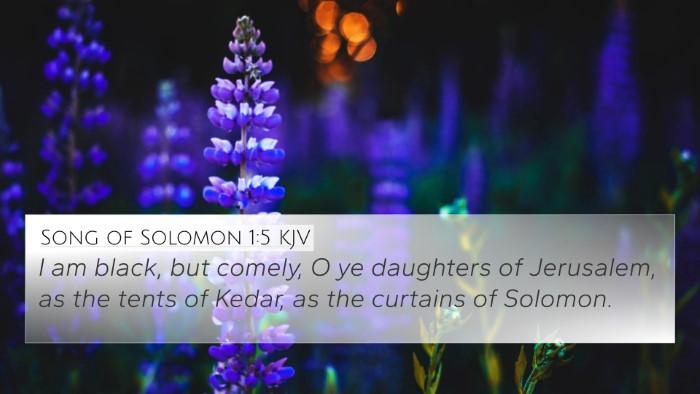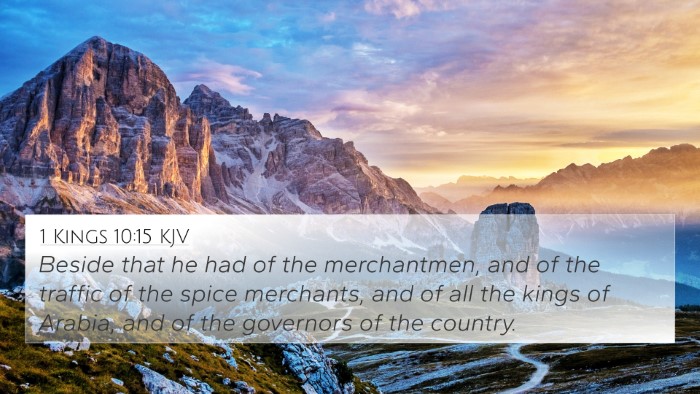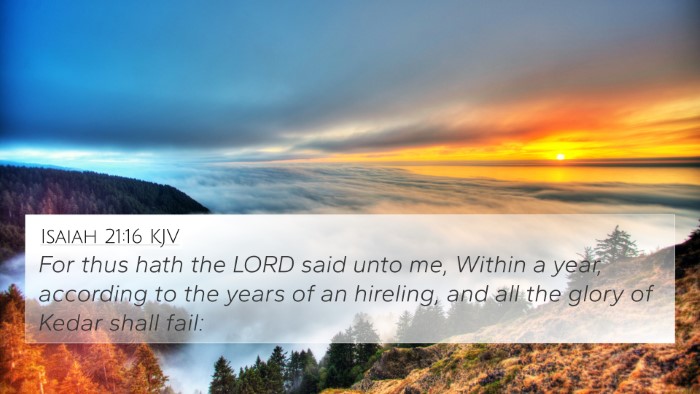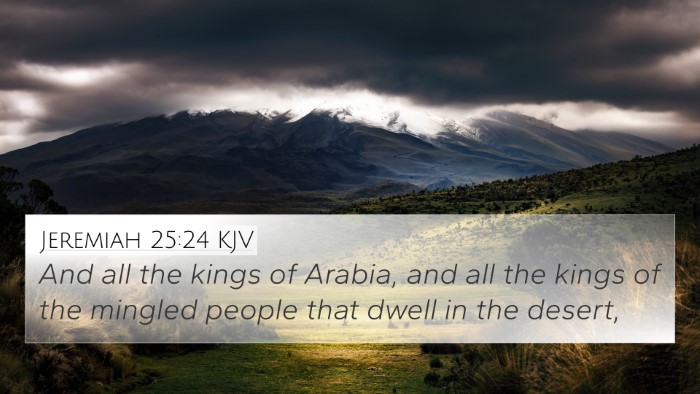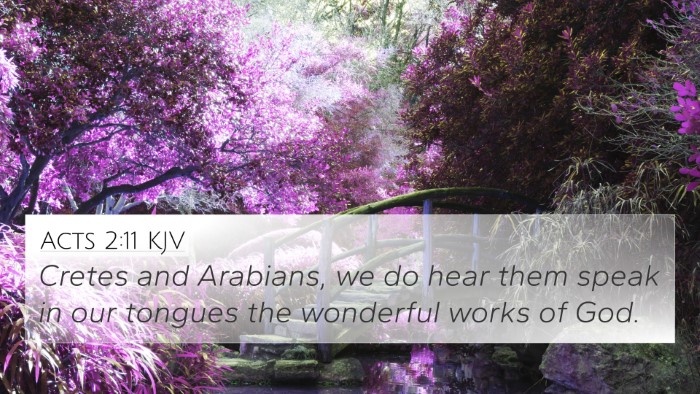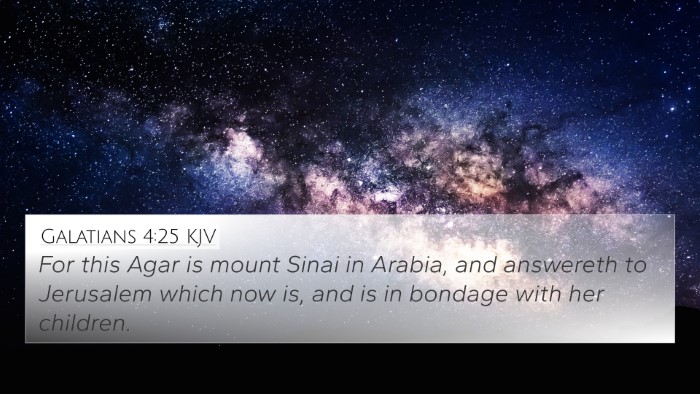Ezekiel 27:21 - Summary and Interpretation
Ezekiel 27:21 states, "The merchants of Sheba and Raamah were your trade merchants; they exchanged the finest of all kinds of spices, and all the precious stones and gold for your wares." This verse reveals the vast trading relationships that Tyre had established, highlighting the city's economic prominence in the ancient world.
Contextual Overview
The Book of Ezekiel addresses the fall of Jerusalem and prophesies the destruction of various nations, including Tyre. This specific verse is found in a passage that lists the various nations and groups that traded with Tyre, emphasizing its role as a commercial hub.
Insights from Public Domain Commentaries
-
Matthew Henry:
Henry emphasizes the economic relationships that Tyre maintained with influential nations. He argues that Tyre's wealth made it a target of prophetic judgment, as it became a metaphor for pride and materialism.
-
Albert Barnes:
Barnes interprets Tyre's alliances with Sheba and Raamah as indicative of its expansive trade network. He notes that these merchants brought valuable materials, further contributing to Tyre's affluence and significance in the ancient Near East.
-
Adam Clarke:
Clarke discusses the geographical mentions of Sheba and Raamah and explains that these regions were known for their luxurious exports. Clarke's analysis points out Tyre's dependence on these relationships for its prosperity, which ultimately led to its downfall as foretold by the prophet.
Thematic Analysis
The verse connects to several themes within the Bible, including:
- Trade and commerce as a reflection of human relationships.
- Pride and the consequences of material wealth.
- The role of prophetic warnings concerning social and economic conditions.
- Connections between the Old Testament prophecies and New Testament teachings on humility and reliance on God.
Cross-References
Ezekiel 27:21 has several Biblical cross-references that enrich its interpretation:
- Isaiah 23:1-18: Prophecy against Tyre, illustrating its commercial activities.
- Jeremiah 25:22: Nations that engaged in trade and their accountability before God.
- Ezekiel 26:3: The impending judgment against Tyre for its arrogance.
- Revelation 18:11-19: The fall of Babylon as a parallel to Tyre’s fall due to materialism.
- Matthew 6:19-21: Teaching on treasures in heaven versus earthly riches.
- James 5:1-3: Warnings to the rich about the transient nature of wealth.
- Proverbs 11:4: Wealth does not benefit in the day of wrath, linking materialism to spiritual truth.
Conclusion
Understanding Ezekiel 27:21 involves recognizing the interconnectedness of wealth, trade, and moral conduct in scripture. The rich trade relationships Tyre cultivated serve as both a blessing and a curse, reflecting the dangers of overindulgence and the eventual consequences foretold by the prophets.
Further Study and Cross-Referencing Tools
For those interested in deeper study, various tools for Bible cross-referencing can assist in finding connections, such as:
- Bible concordance for locating themes and terms.
- Bible reference resources that provide extensive cross-references.
- Cross-reference Bible study guides that help in exploring Biblical relationships.
- Comprehensive database materials for a detailed comparative study.
Links between the Testaments
This verse further exemplifies the rich tapestry of inter-Biblical dialogue, where Old Testament prophecies resonate with New Testament teachings. Understanding these links enhances the study of scripture as a cohesive whole, allowing believers to see the underlying truths across various contexts.

